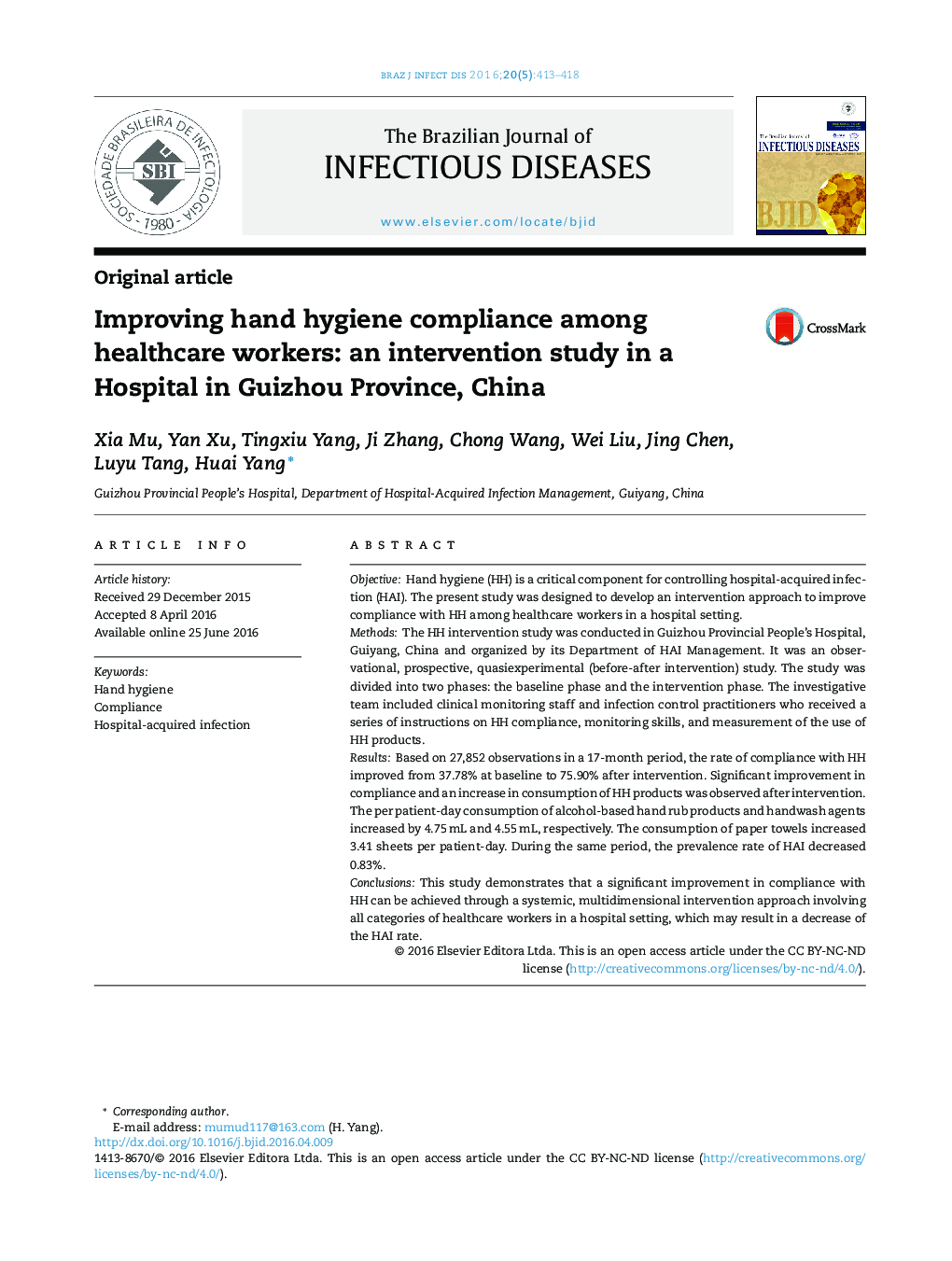| Article ID | Journal | Published Year | Pages | File Type |
|---|---|---|---|---|
| 3343660 | The Brazilian Journal of Infectious Diseases | 2016 | 6 Pages |
ObjectiveHand hygiene (HH) is a critical component for controlling hospital-acquired infection (HAI). The present study was designed to develop an intervention approach to improve compliance with HH among healthcare workers in a hospital setting.MethodsThe HH intervention study was conducted in Guizhou Provincial People's Hospital, Guiyang, China and organized by its Department of HAI Management. It was an observational, prospective, quasiexperimental (before-after intervention) study. The study was divided into two phases: the baseline phase and the intervention phase. The investigative team included clinical monitoring staff and infection control practitioners who received a series of instructions on HH compliance, monitoring skills, and measurement of the use of HH products.ResultsBased on 27,852 observations in a 17-month period, the rate of compliance with HH improved from 37.78% at baseline to 75.90% after intervention. Significant improvement in compliance and an increase in consumption of HH products was observed after intervention. The per patient-day consumption of alcohol-based hand rub products and handwash agents increased by 4.75 mL and 4.55 mL, respectively. The consumption of paper towels increased 3.41 sheets per patient-day. During the same period, the prevalence rate of HAI decreased 0.83%.ConclusionsThis study demonstrates that a significant improvement in compliance with HH can be achieved through a systemic, multidimensional intervention approach involving all categories of healthcare workers in a hospital setting, which may result in a decrease of the HAI rate.
